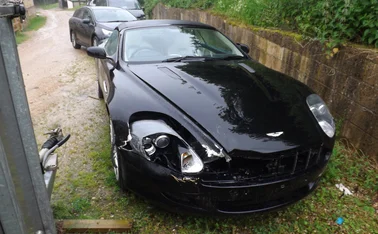
Post Blog: The anatomy of an opportunist

What does the typical non-organised household insurance fraudster look like and what steps should the industry be taking to stop them? Sally Griffiths investigates.
Until now research has only been conducted into fraudsters on an organised crime level. However, a recent study by VFM Services and the University of Portsmouth, profiled a typical household fraudster providing an insight into the characteristics of the everyday consumer who submits a fraudulent household insurance claim.
Based on analysis of fraudulent claims investigated by VFM, someone likely to submit a fraudulent household claim could equally be male or female, is 44 years-old and will typically make a claim for £716 for accidental damage to a computer.
The claim is most likely to be made in the summer as more dishonest claims were reported in August and September than the rest of the year. It will be the first claim made on their policy, which would have been held for less than a year.
But what can be drawn from these findings? The conclusion is that a dishonest household insurance claimant differs in their demographics to occupational fraudsters. Insurance fraud must be considered in a different light to regular crime and other types of fraud.
According to Professor Mark Button, fraud expert at the University of Portsmouth their is a perception that insurance fraud is only considered to be "a little bit dishonest" and most consumers will allow themselves to be somewhat dishonest in their everyday lives. This is why the bulk of the claims are under £500 and few policyholders claim more than once.
Research by the Association of British Insurers reveals that 37% of consumers would not rule out committing insurance fraud in the future, 29% think it's acceptable, and 2% admit to actually having done it.
Feedback from some consumers on the release of the VFM report corroborates this. One member of the public posted a comment online in response to a news article about the report stating that they were entitled to claim on an insurance policy, because they have paid out their money over the years in premiums, so they were just recouping what was rightly theirs.
The report also concludes that the typical fraudster is opportunistic. The majority of fraudsters, for example, have experienced a genuine claim, but will seek to benefit from the occasion, by inflating the claim, adding on the theft of a camera, or other item onto a genuine burglary claim. Research by Karstedt and Farrall found that almost a quarter of people in England and Wales would consider padding an insurance claim.
Circumstance also relates to the time of year that claims occur. The number of claims is higher in the summer, and suggests that this may be due to people being at home during the school holidays, with more time to think about making a claim or stage an accident. Looking at the data in detail, the number of TV claims peaks in October, perhaps correlating to higher TV viewing figures, as the nights draw in, and the weather begins to deteriorate.
But what can the industry do to reduce the level of fraud at point of claim and when assessing risk? Fraud occurs when circumstance and the opportunity presents itself to the potential fraudster so the story around the claim is almost as important as the technical details of the claim itself.
The industry must consider how to make fraudulent claims less morally acceptable. It must be as difficult as possible for the fraudster to succeed. If claims are easily settled, without a hint of questioning from an insurer, not only could they think it's something that they can easily do again but they are also more likely to tell their friends and family about it.
This doesn't mean to say that every false claim uncovered should be taken to court; often just letting the claimant know that they have been found out is enough to deter the opportunist from trying again in the future or withdraw a false claim.
Prevention is better than cure. The industry must understand what makes Joe Public turn fraudster and take steps to prevent it. Settling claims may seem like saving money by spending fewer hours on claims resolution, but in reality it is a false economy that is short sighted; a practice of simply settling and not defending potentially fraudulent claims creates a breeding ground for opportunists.
Insurers should be using any intelligence gathered, whether psychological, physical or otherwise with its claims handlers to help discourage fraudulent claims. The industry must work together to dispel any myths that insurance fraud is acceptable or easy to get away with without consequence.
Sally Griffiths, director, VFM Services
Only users who have a paid subscription or are part of a corporate subscription are able to print or copy content.
To access these options, along with all other subscription benefits, please contact info@postonline.co.uk or view our subscription options here: http://subscriptions.postonline.co.uk/subscribe
You are currently unable to print this content. Please contact info@postonline.co.uk to find out more.
You are currently unable to copy this content. Please contact info@postonline.co.uk to find out more.
Copyright Infopro Digital Limited. All rights reserved.
As outlined in our terms and conditions, https://www.infopro-digital.com/terms-and-conditions/subscriptions/ (point 2.4), printing is limited to a single copy.
If you would like to purchase additional rights please email info@postonline.co.uk
Copyright Infopro Digital Limited. All rights reserved.
You may share this content using our article tools. As outlined in our terms and conditions, https://www.infopro-digital.com/terms-and-conditions/subscriptions/ (clause 2.4), an Authorised User may only make one copy of the materials for their own personal use. You must also comply with the restrictions in clause 2.5.
If you would like to purchase additional rights please email info@postonline.co.uk






